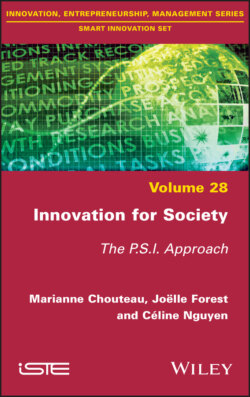Читать книгу Innovation for Society - Joëlle Forest - Страница 12
1.2.2.2. The paradox of happiness
ОглавлениеThe illusion of the meaning of innovation is also noticeable on the consumer side. The consumption of innovation has now become a routine. Indeed, while innovation used to be exceptional, it is now expected and has become a “mass product”. The MediaCom study of September 10, 2015 reveals that 73% of French people make innovation a real purchasing criterion [MED 15]10, and underlines that innovation is desired by more than one target group11. Innovation attracts the vast majority of French people, regardless of their age (16–24 years: 91%, 50–65 years: 76%), sex (men: 82%, women: 81%) or socio-professional (CSP) status (inactive: 78%, CSP+: 85%).
This appetite for innovation is related to the fact that innovation is spontaneously associated with expected benefits, whether these benefits are
– functional: the innovation simplifies daily life, saves time, etc.;
– hedonistic: the innovation contributes to immediate satisfaction; it gives new magic to daily life by giving us new personal experiences;
– symbolic: the innovation contributes to making visible my identity, my belonging to communities, etc.
But more fundamentally, the idea that the increase in the consumption of innovations goes hand in hand with the increase in our well-being12, as if our happiness depends solely on the quantity of objects we possess or experiences we have had, is behind the innovation addiction13.
However, the correlation established between innovation and happiness is an illusion. The richest people, who, technically speaking, are able to consume the most innovations, are not necessarily the happiest. There are several reasons for this:
– the first acknowledges the ephemeral nature of the feeling of happiness associated with possession. Once acquired, the object quickly becomes ordinary and the bubble of happiness bursts;
– the second is our inability to be satisfied with what we have (we often behave like spoiled children and always want more);
– the third is related to the comparison effect. The rapid diffusion of innovations contributes to their democratization and thus reduces the conspicuous character attributed to them by wealthier consumers. Conversely, innovation produces frustration among the most disadvantaged who cannot access this new standard;
– finally, happiness cannot be reduced to the number of assets acquired; “it includes such intangible and subjective elements as feelings of belonging, justice, physical and social security, family development …” [BLO 10, p. 320].
Taking into account the unsustainable nature of the happiness offered by the consumption of innovations, coupled with the fact that a consumer society is now more concerned with stimulating the desire to buy than with providing individuals with “useful” consumption14, in a context increasingly marked by the question of the growing pressure on our environment, updates the question of the meaning of innovation.
